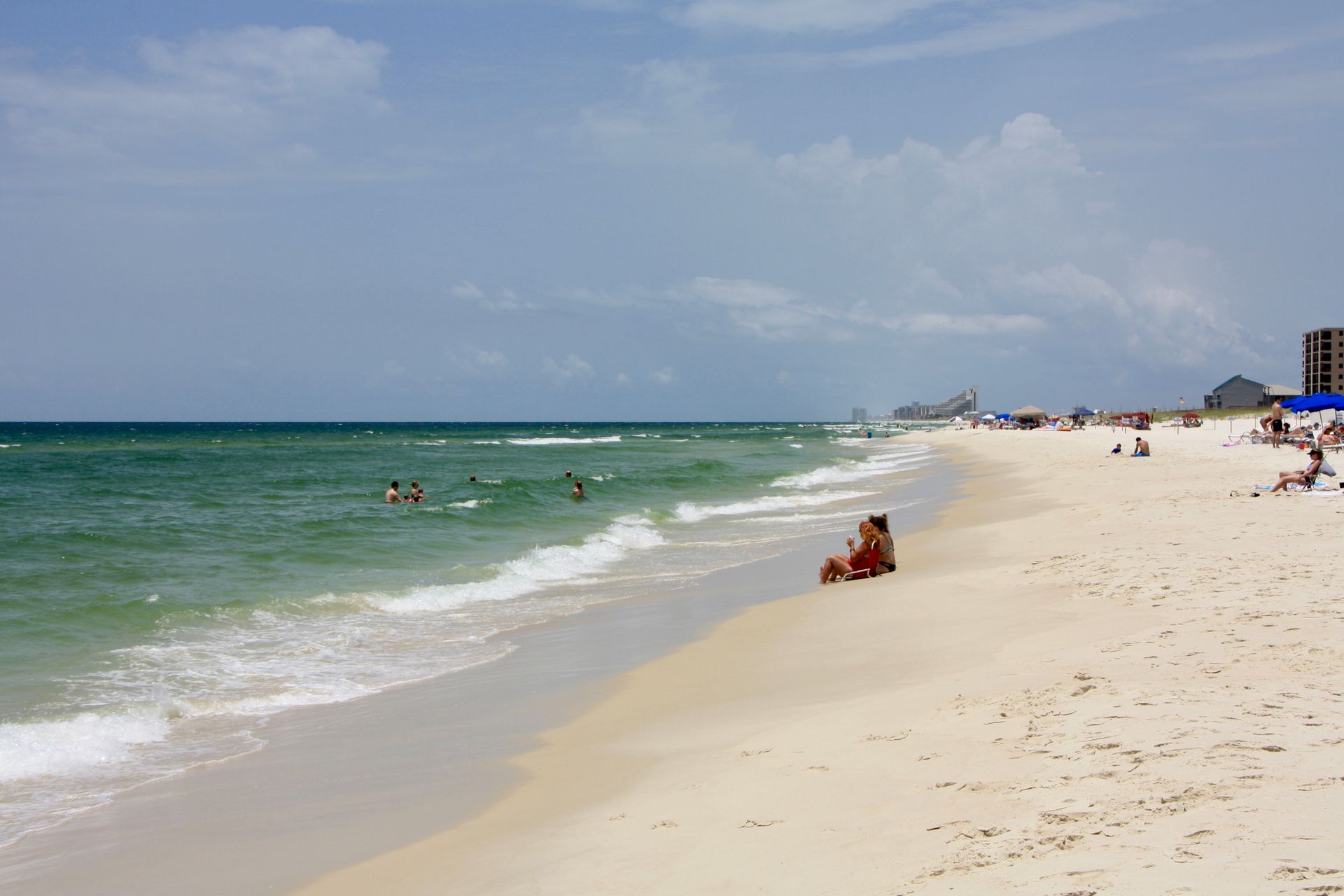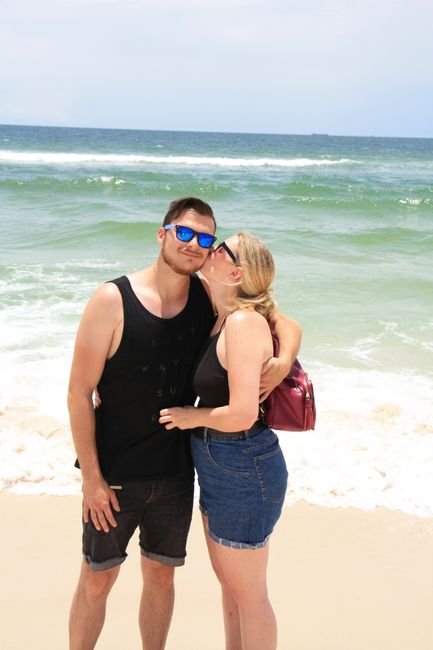Road Trip Part V - Yellowstone National Park
Udgivet: 01.06.2018
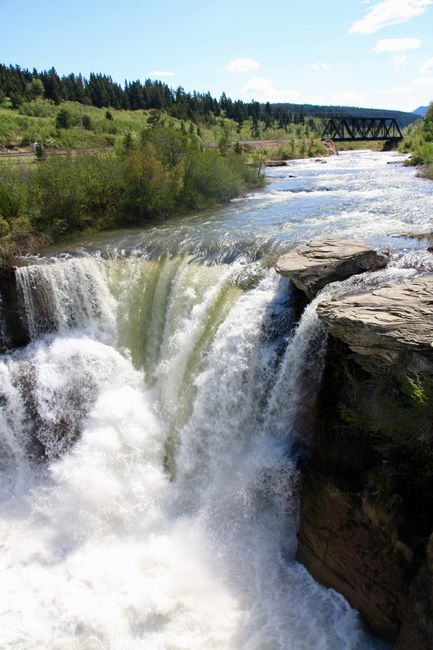
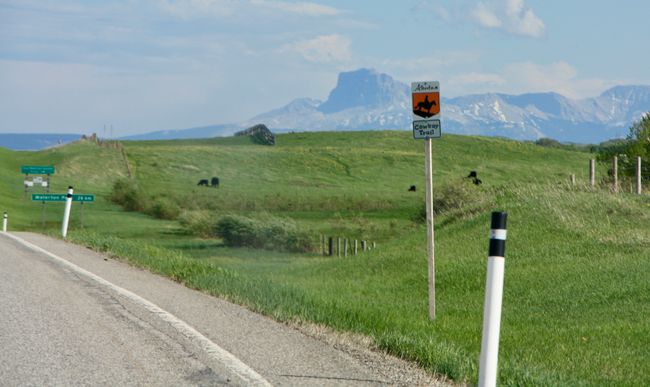
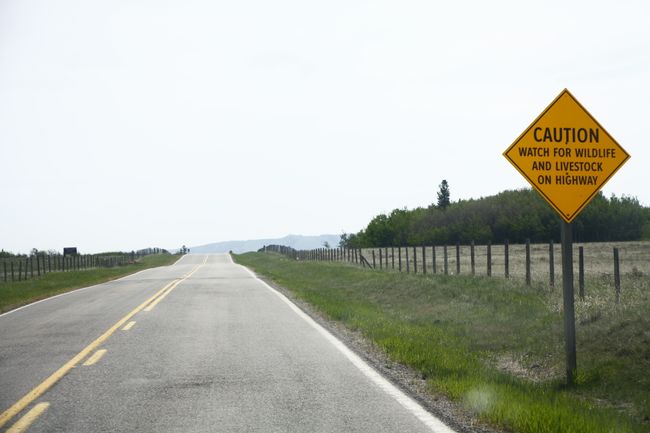
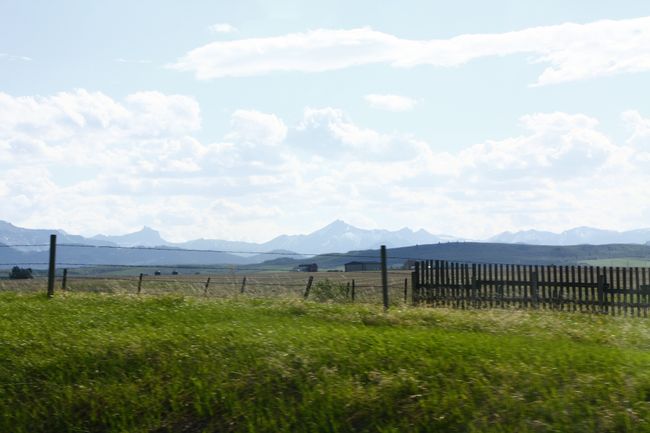
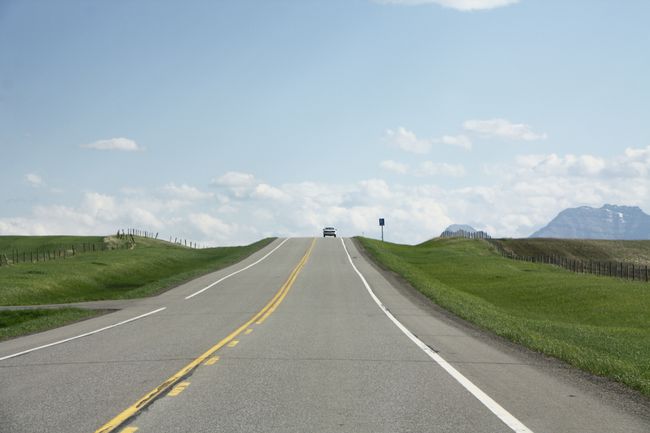
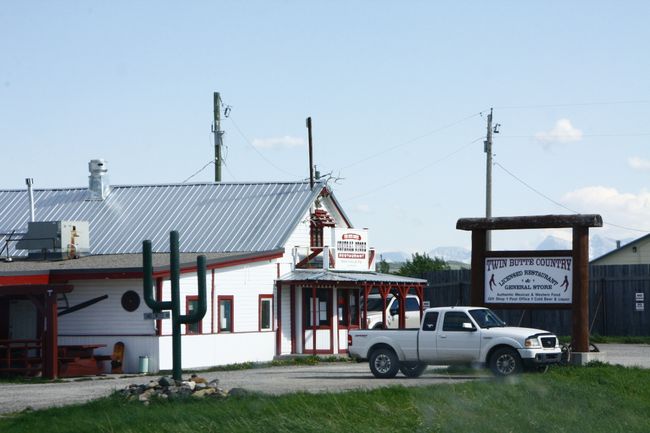
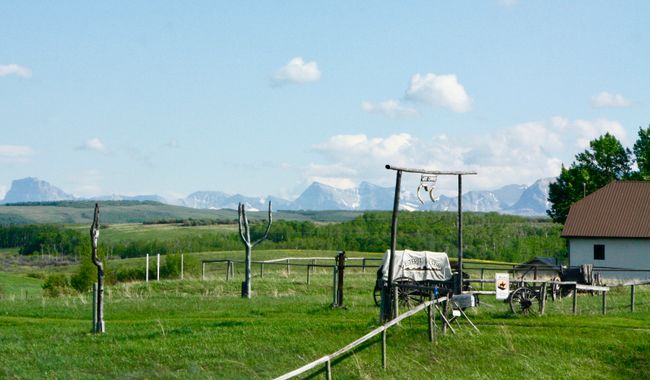
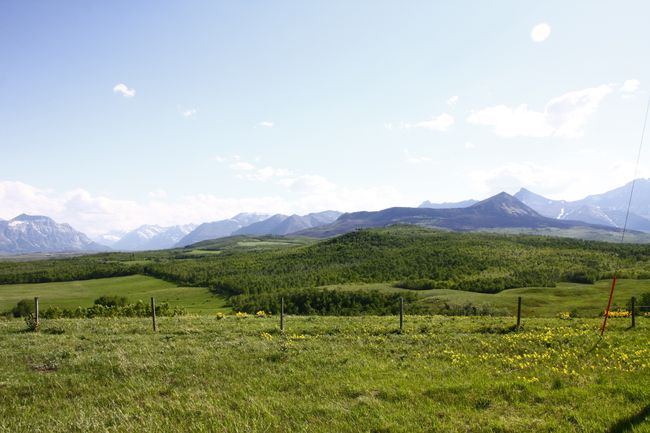
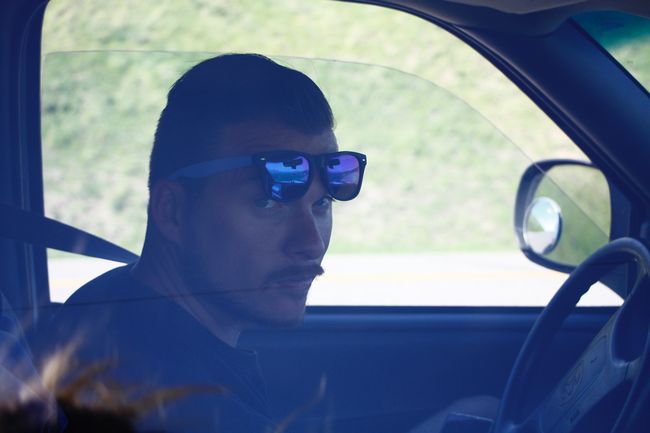
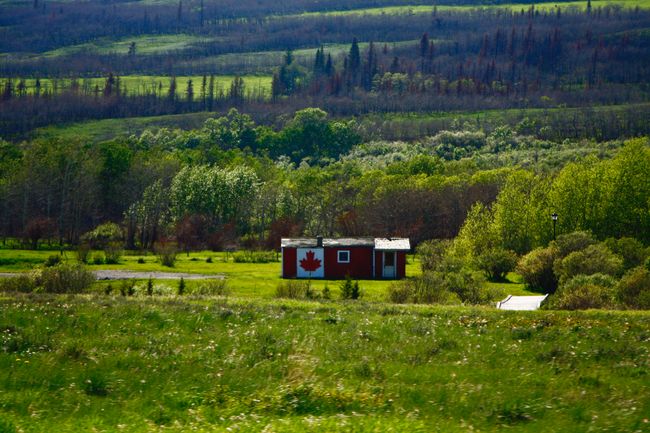
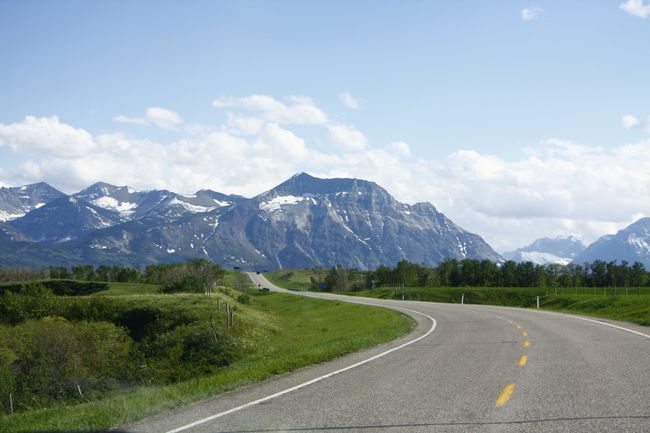
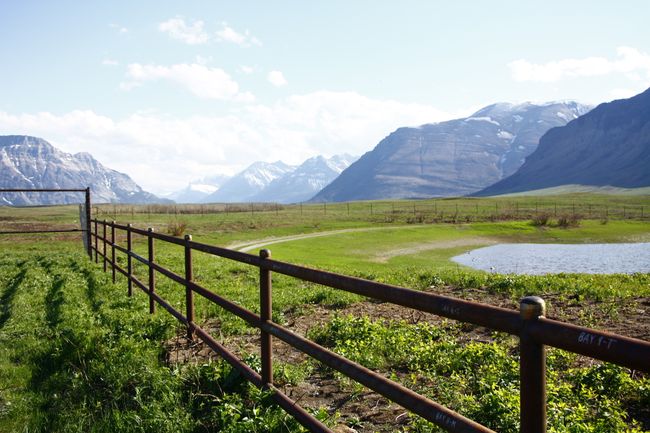
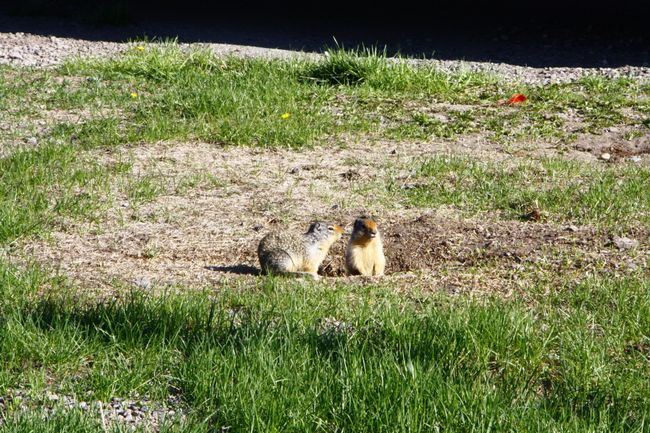
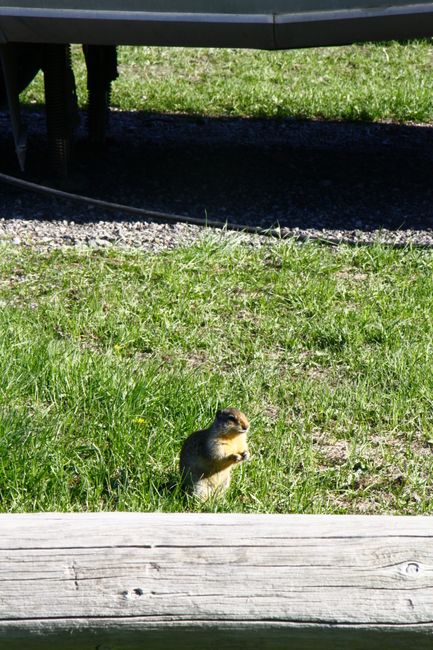
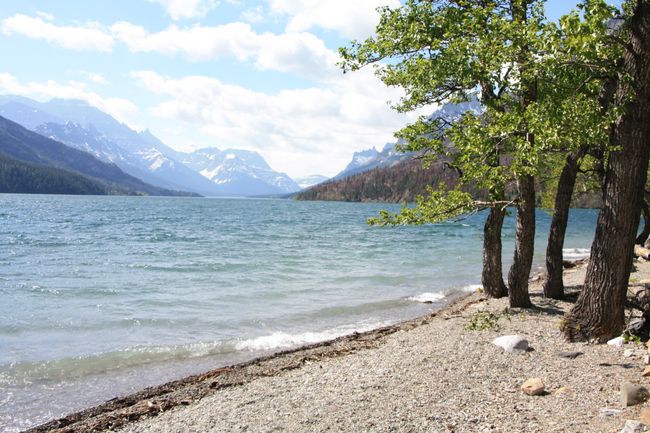
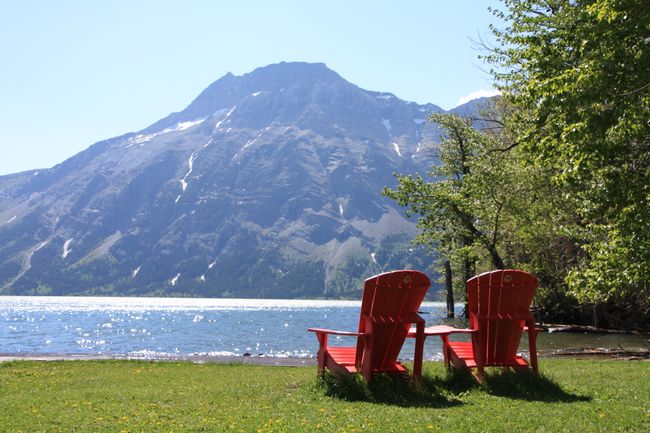
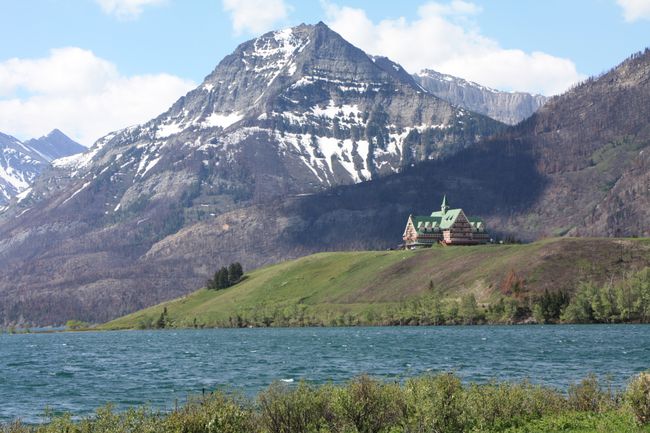
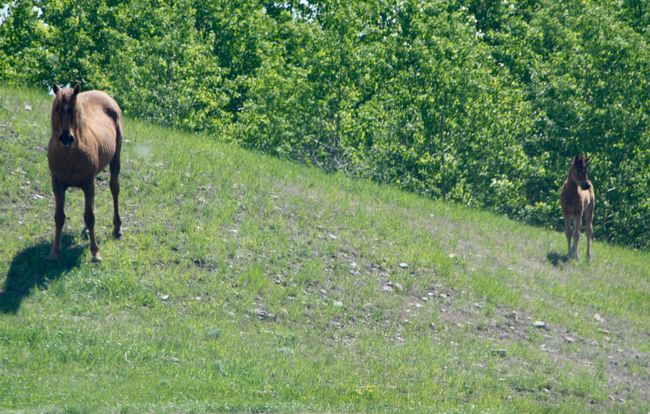
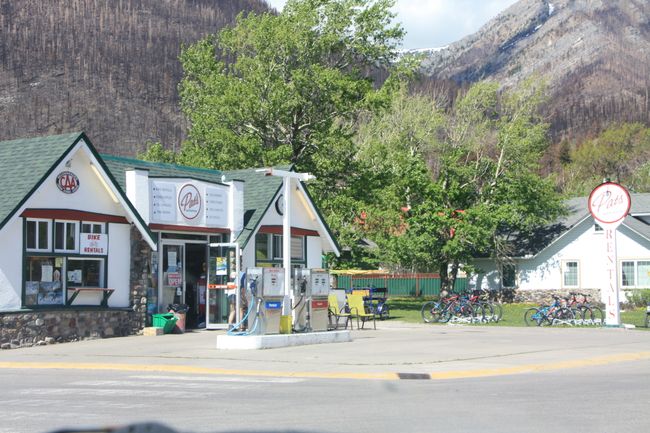
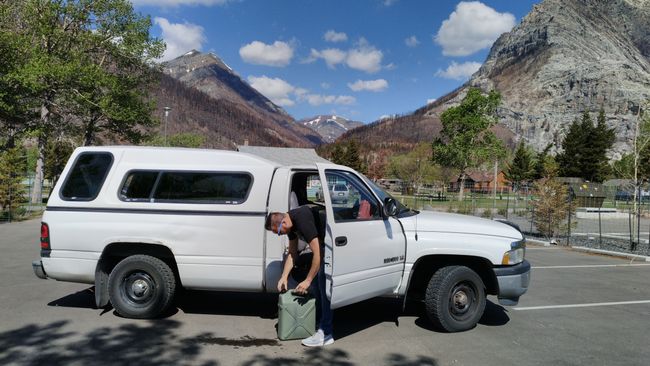
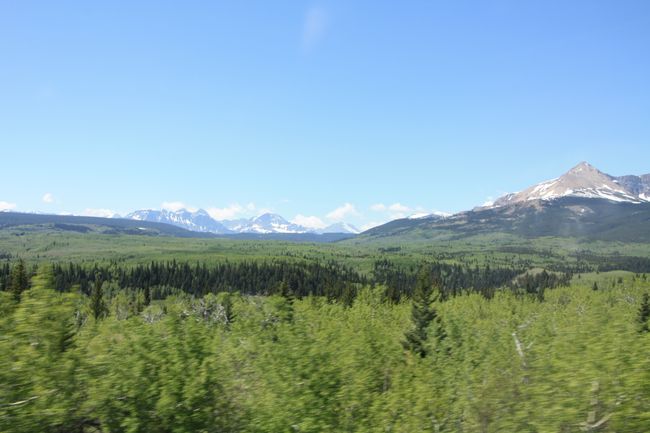
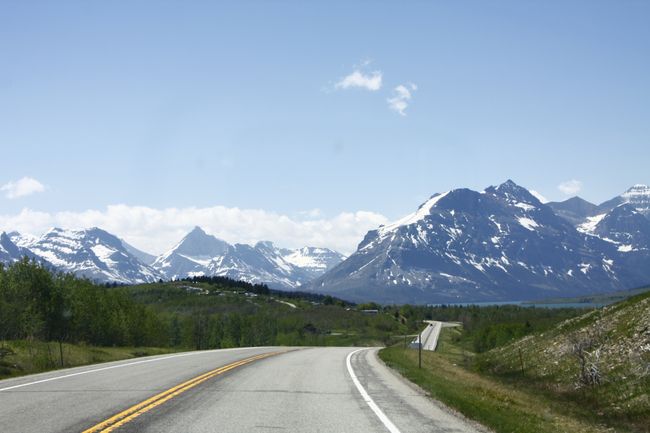
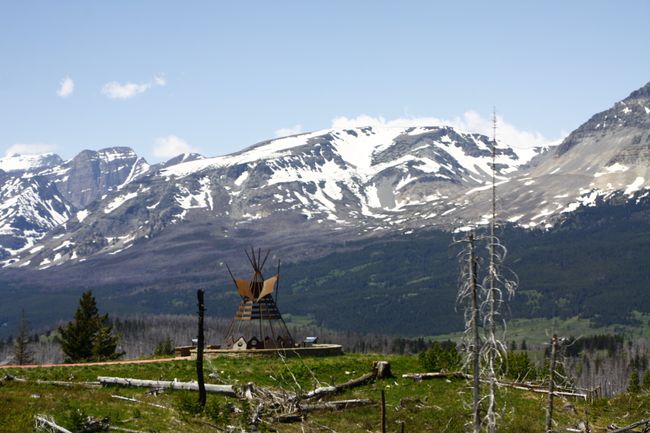
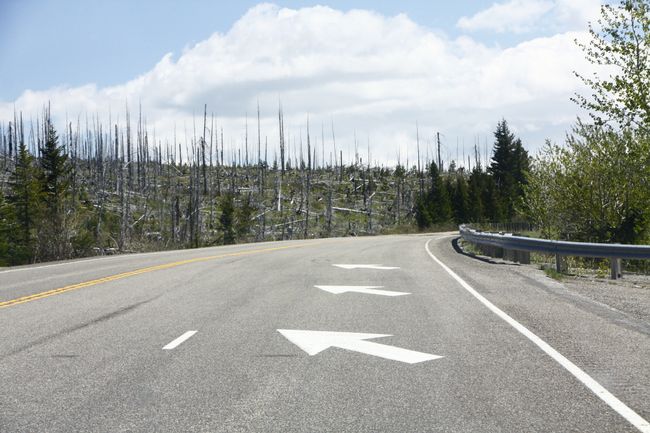
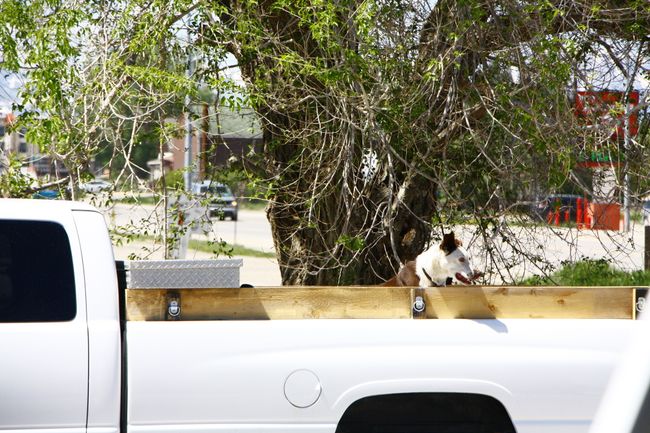
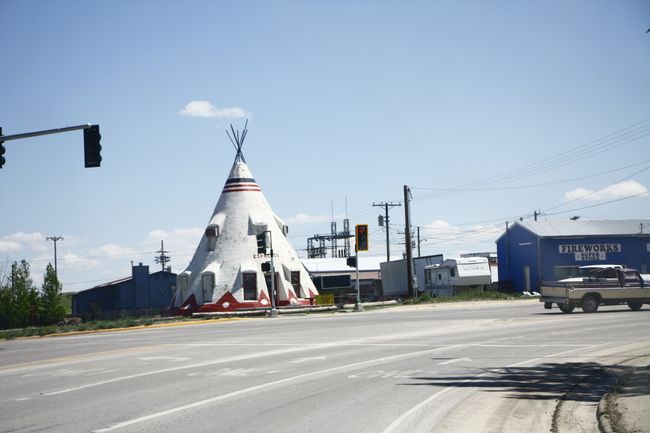
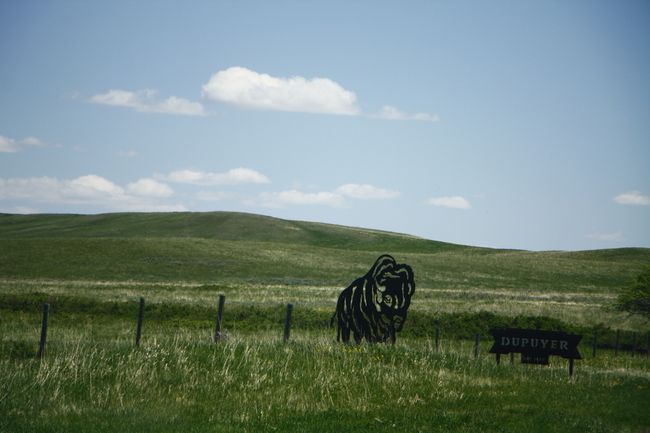
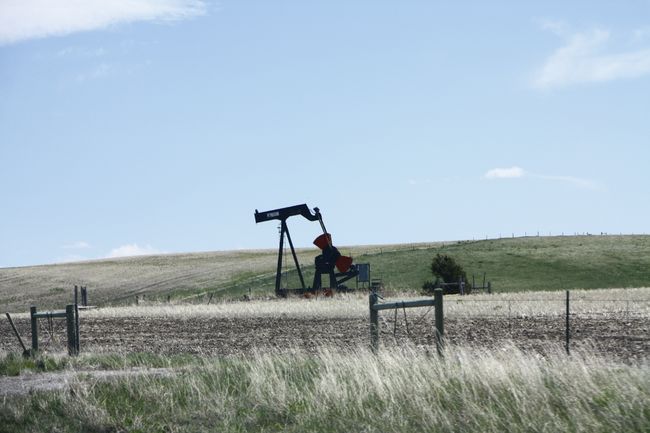
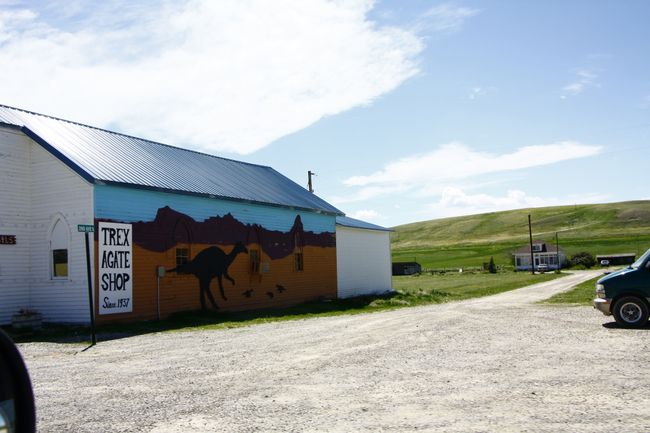

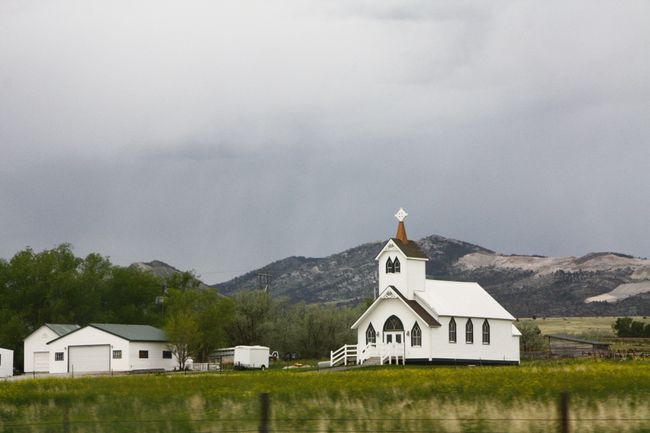

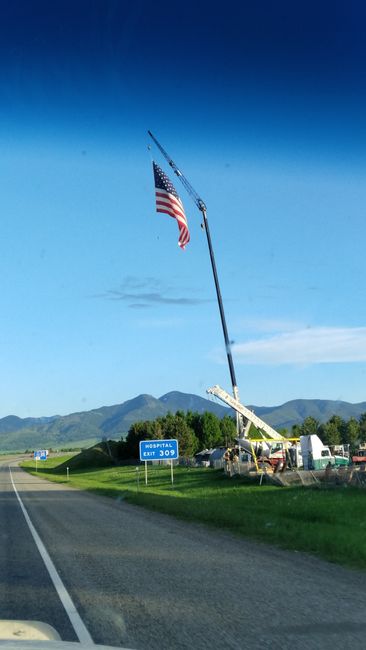
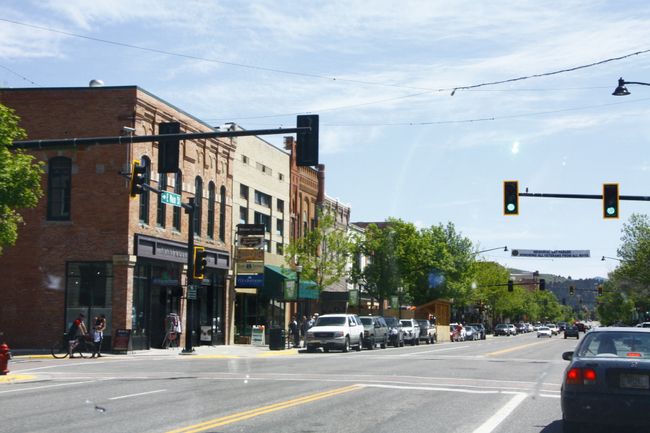
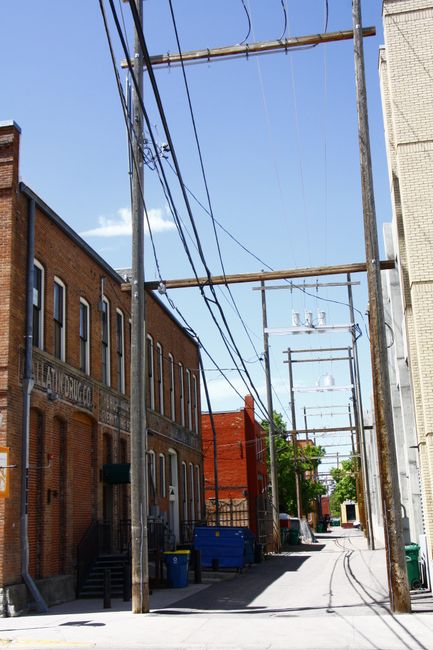
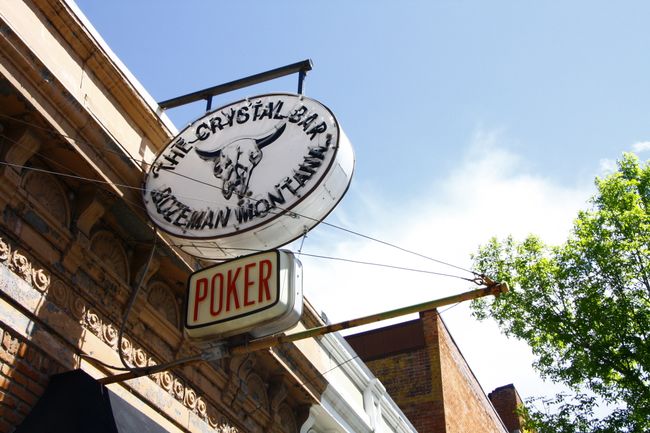
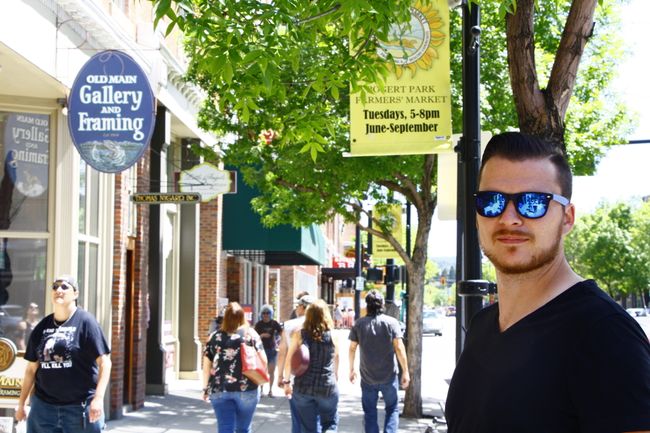

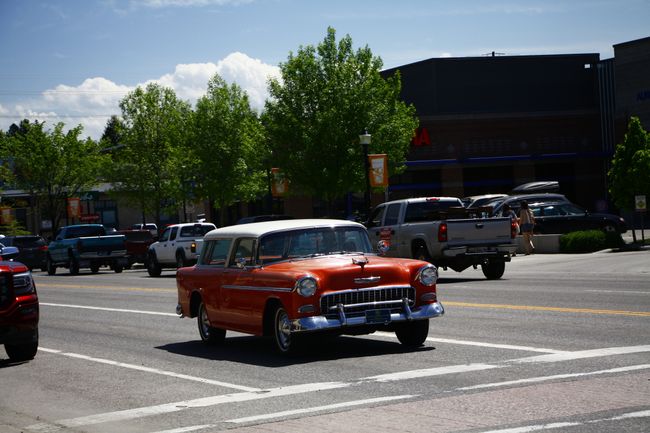
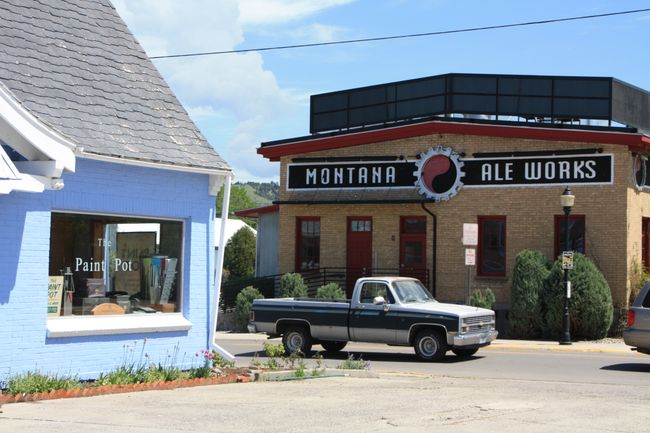
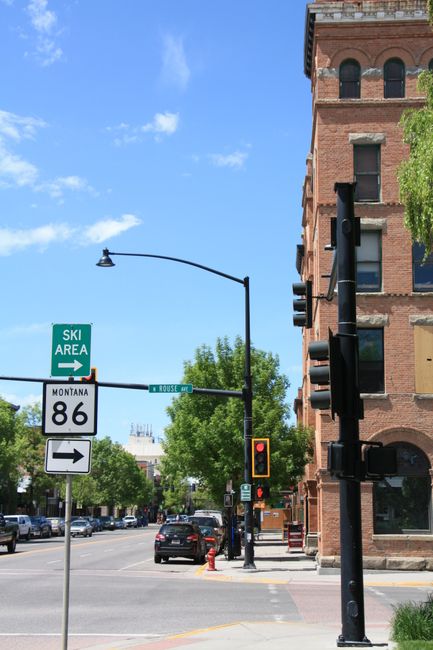
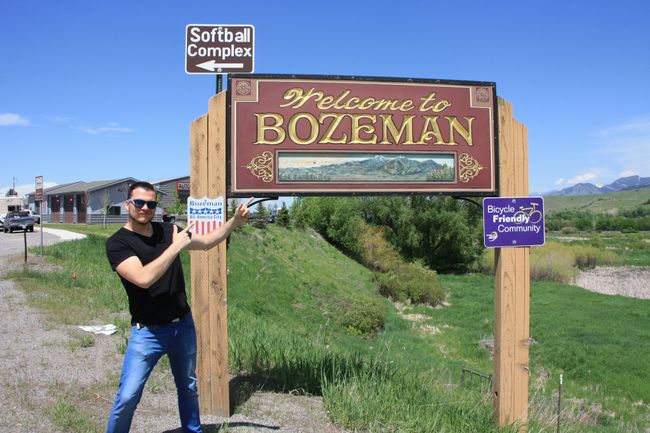
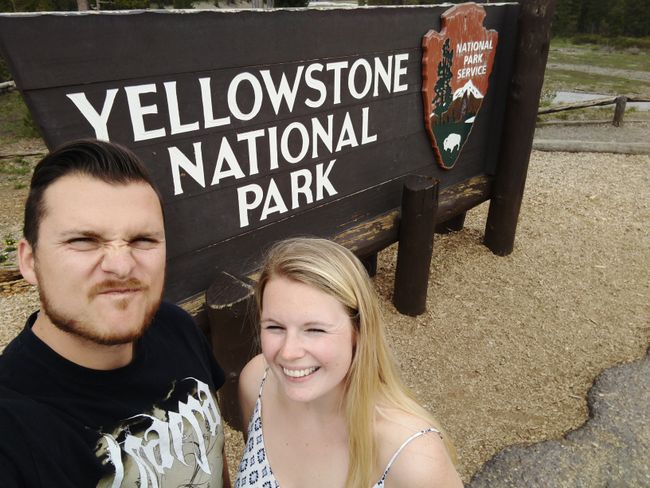
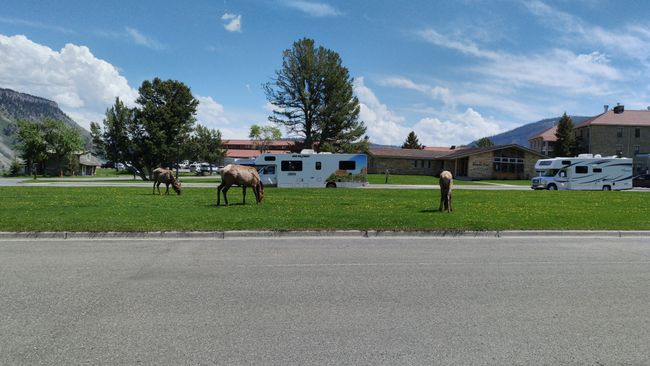
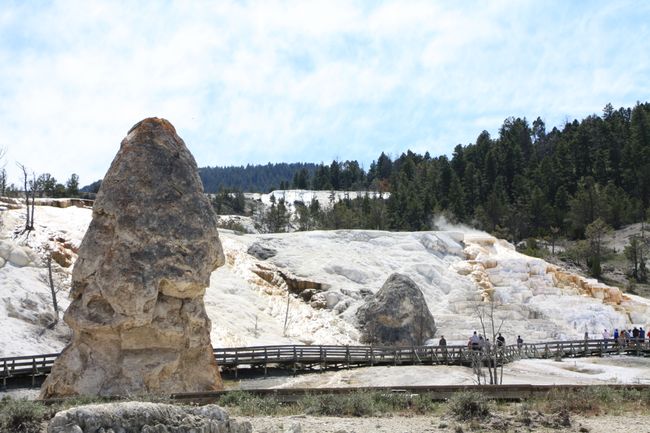
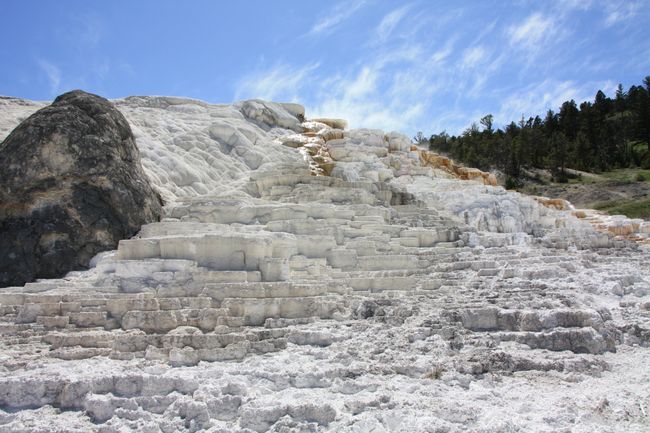
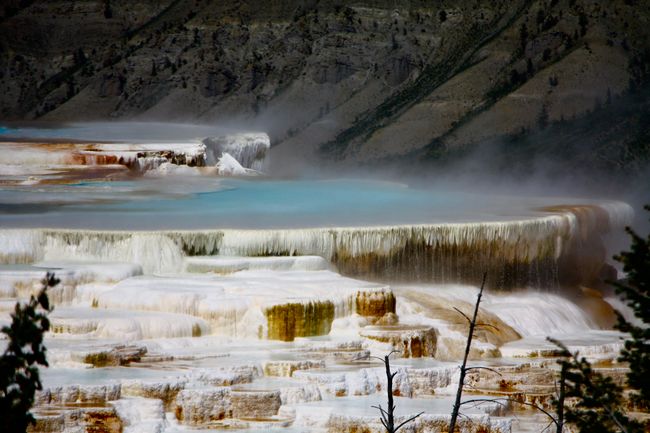
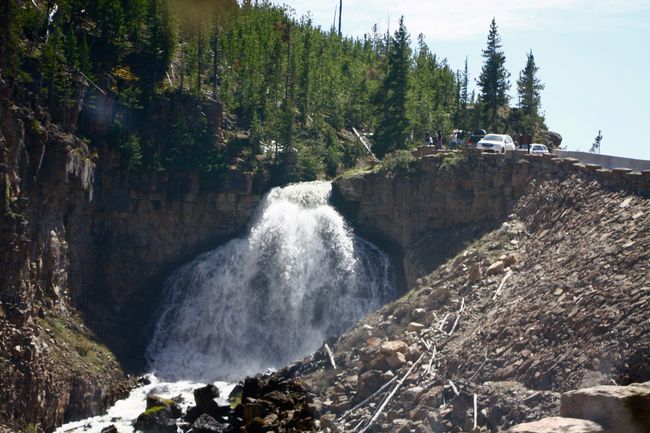
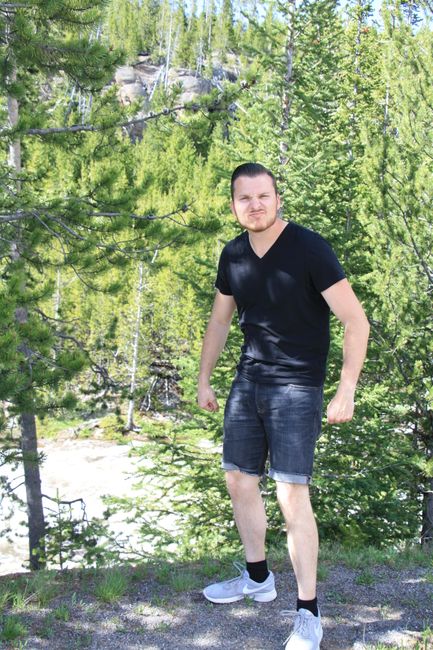
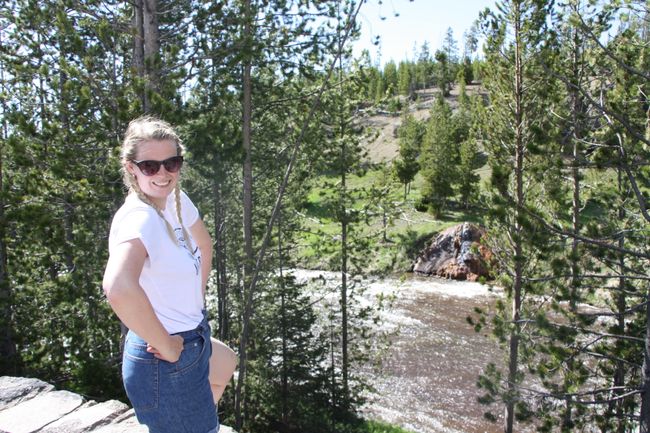
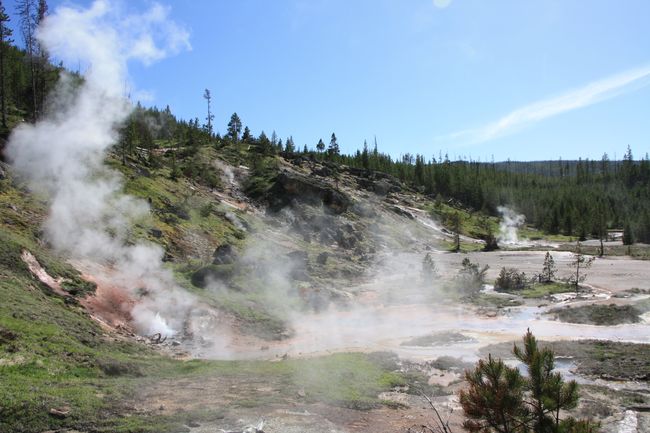
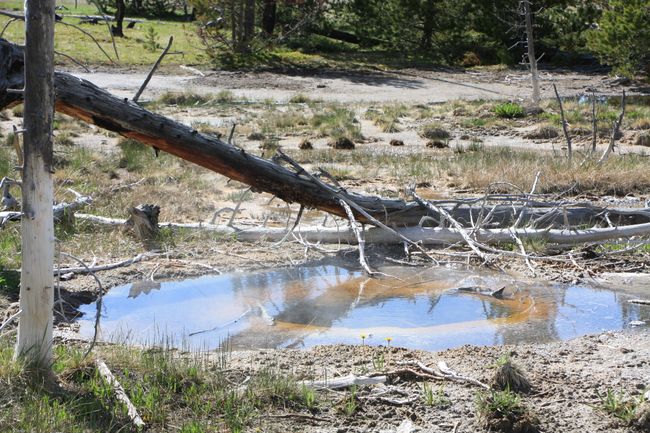
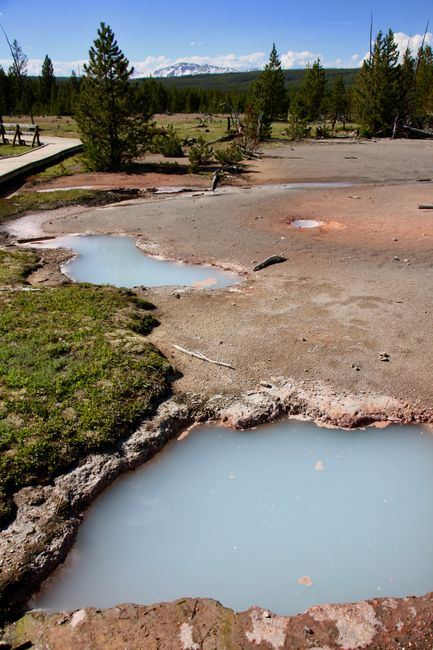
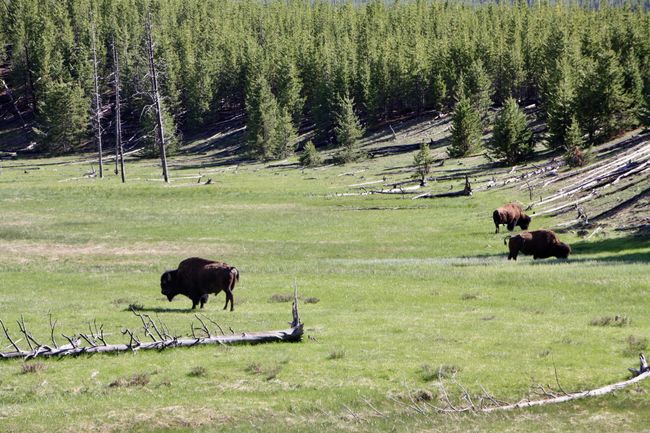
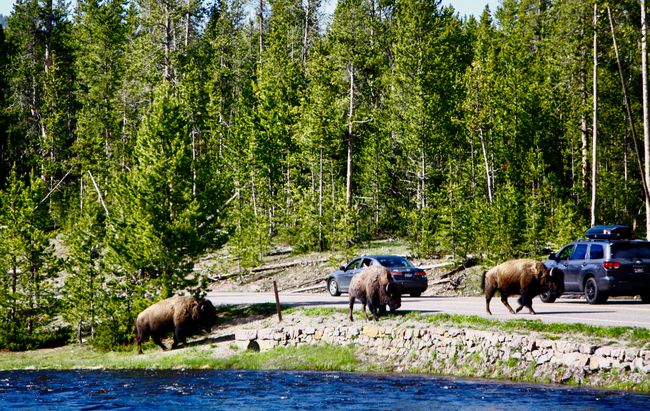
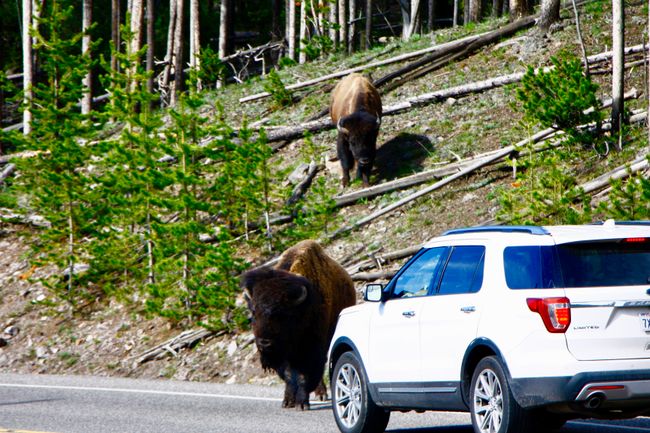
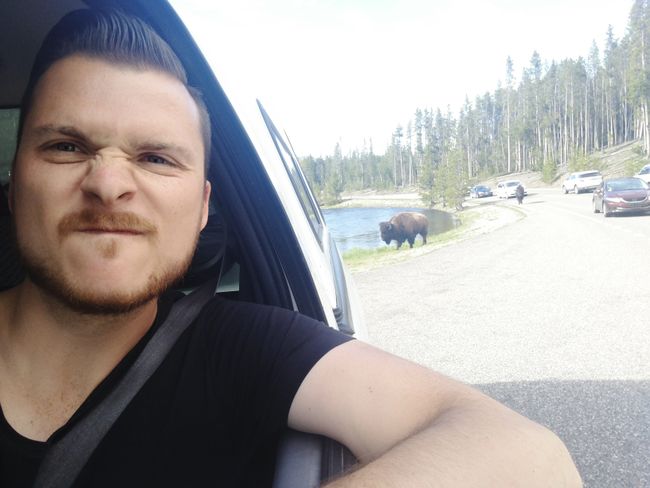
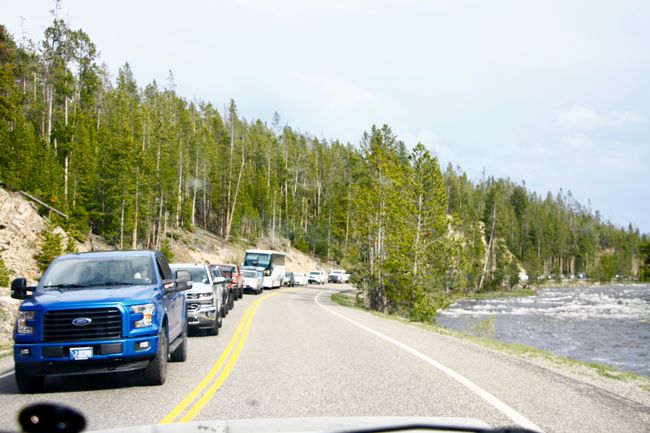
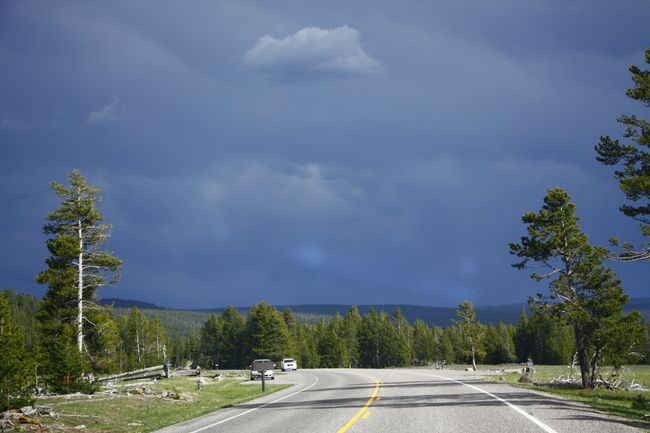
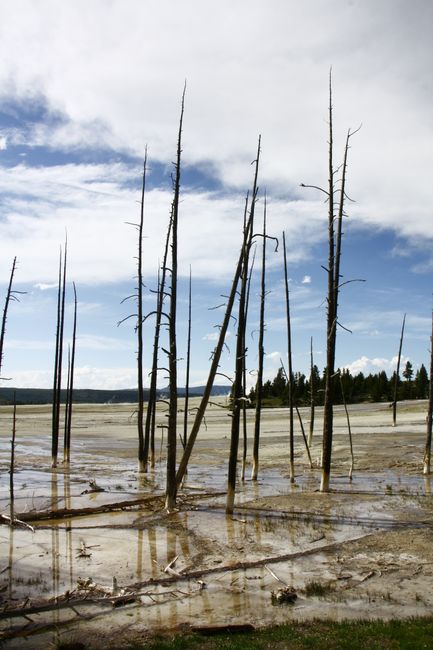
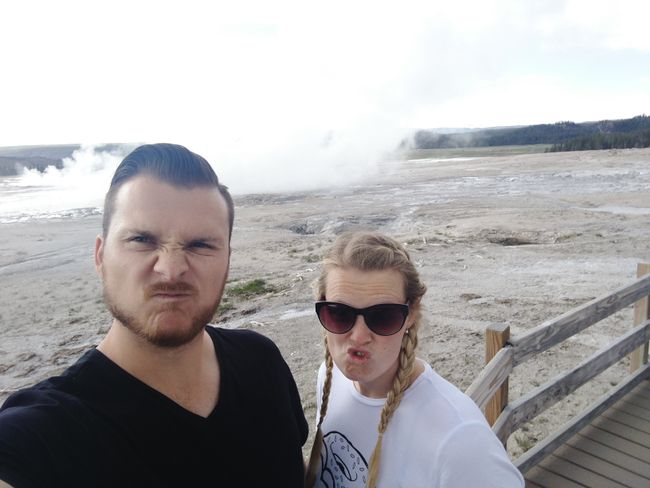
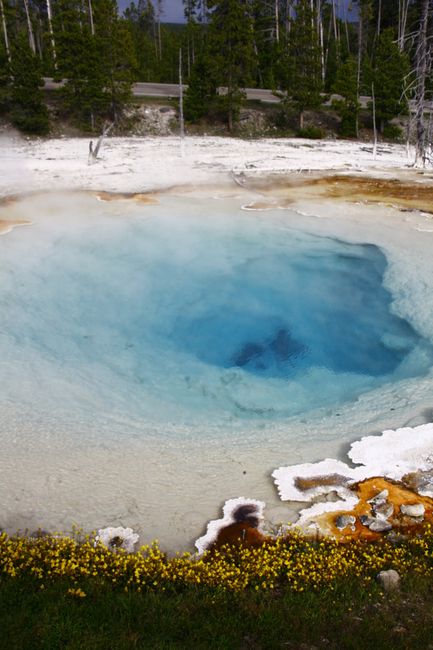
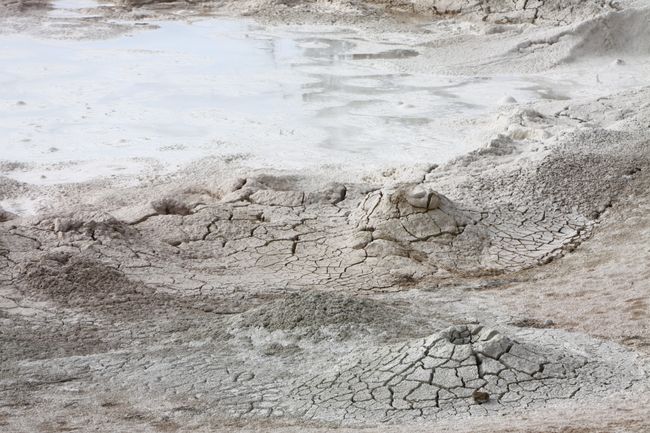
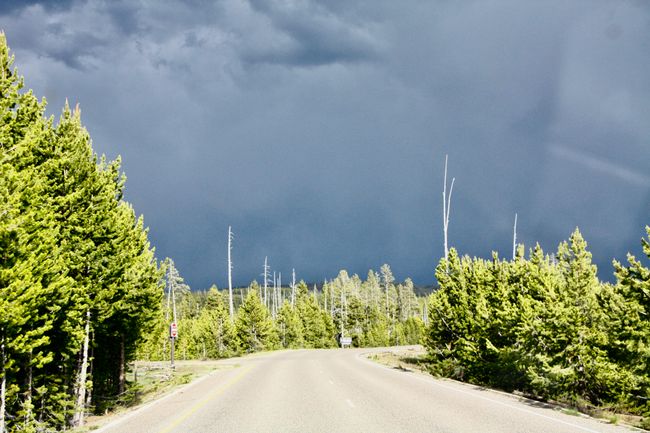
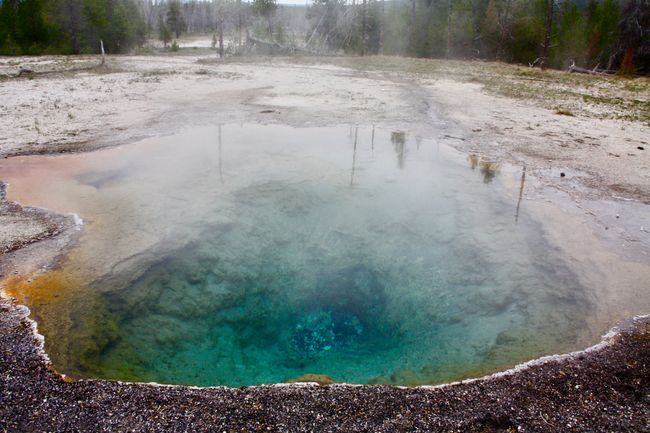
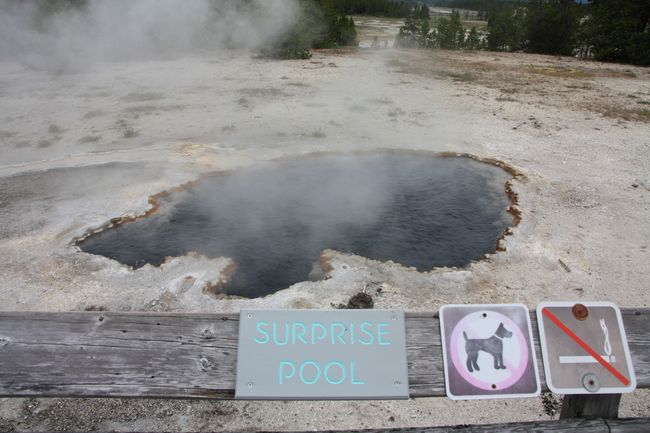
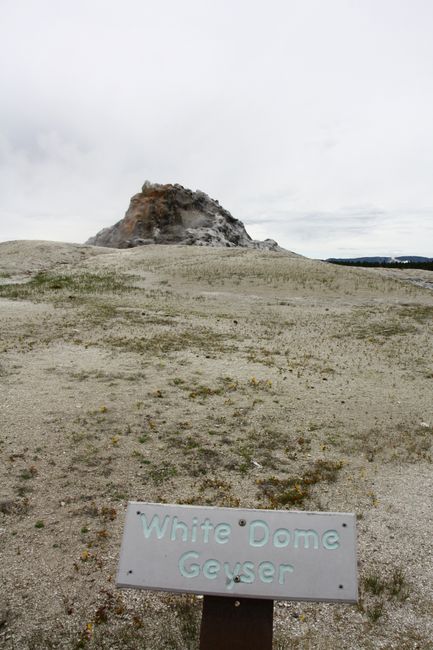
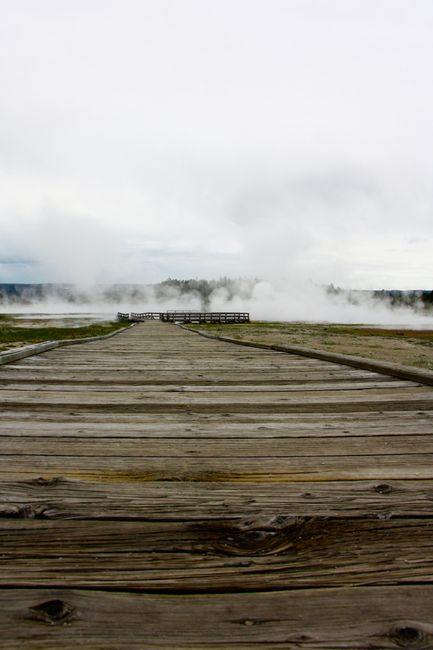
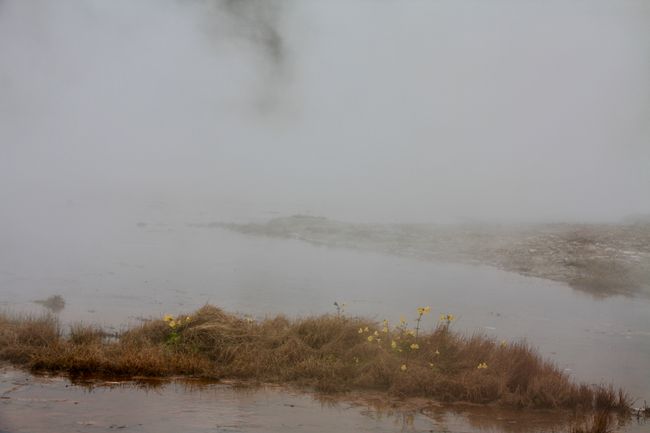
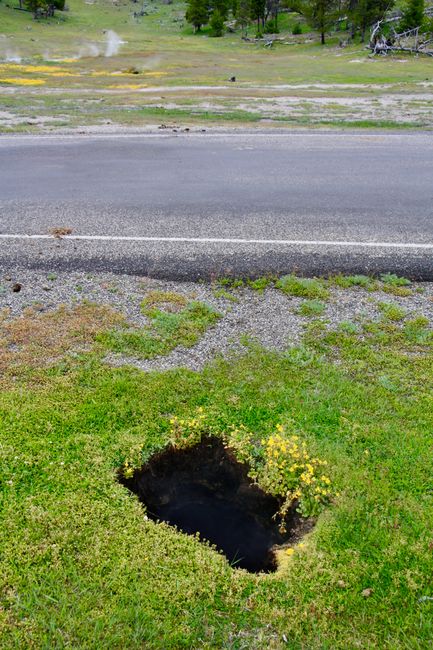
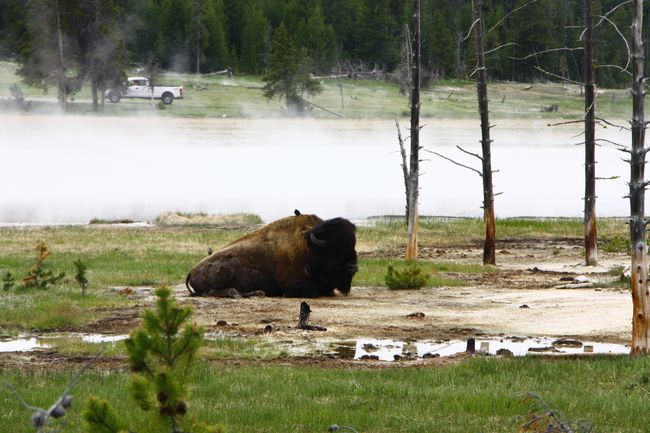
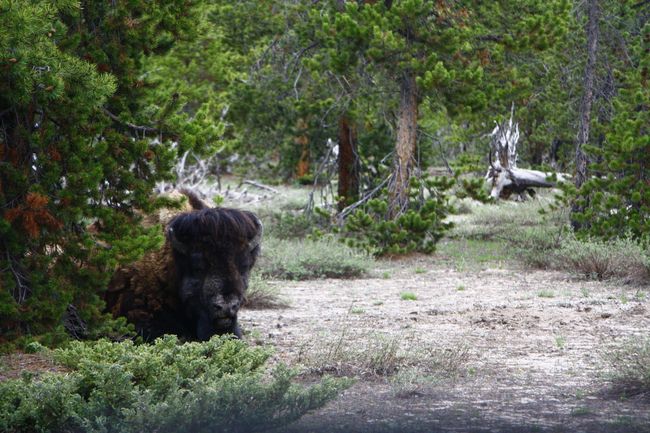

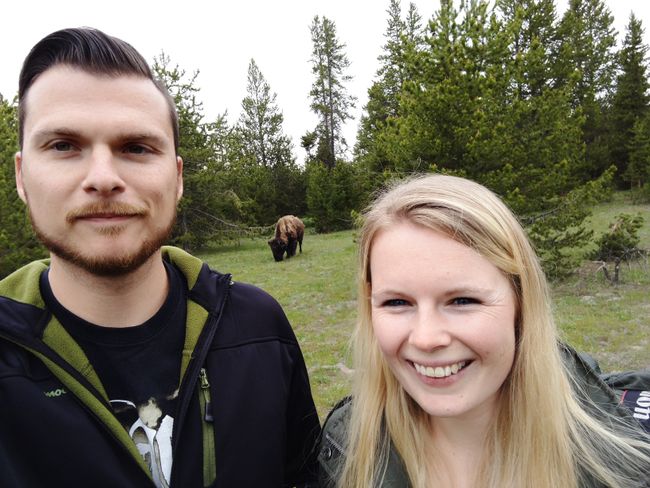
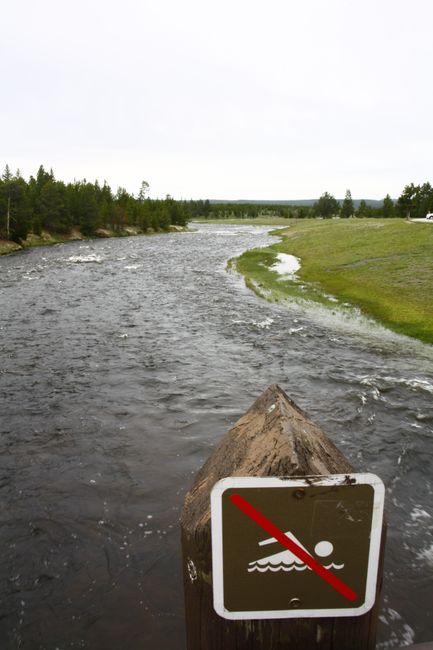
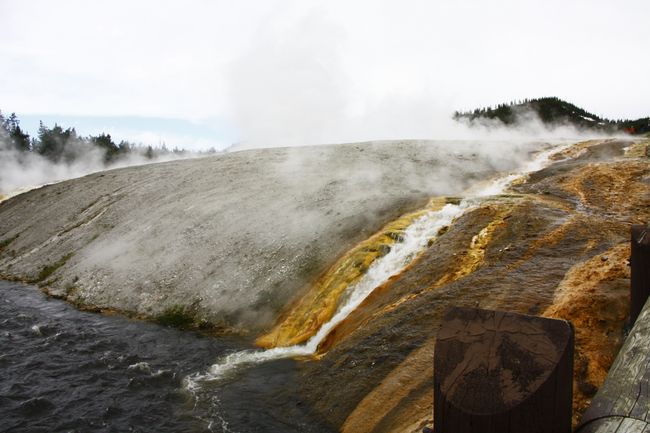
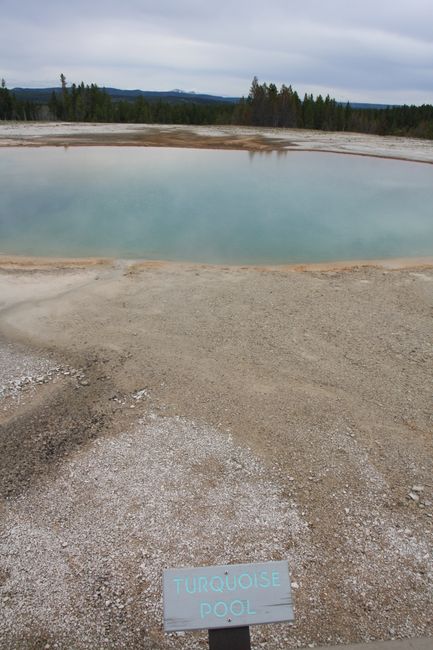
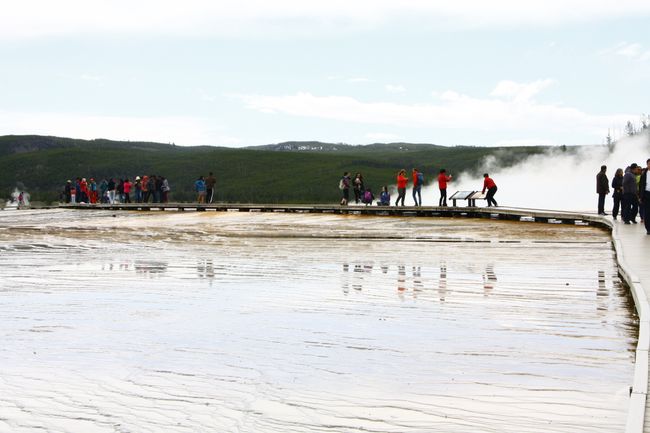
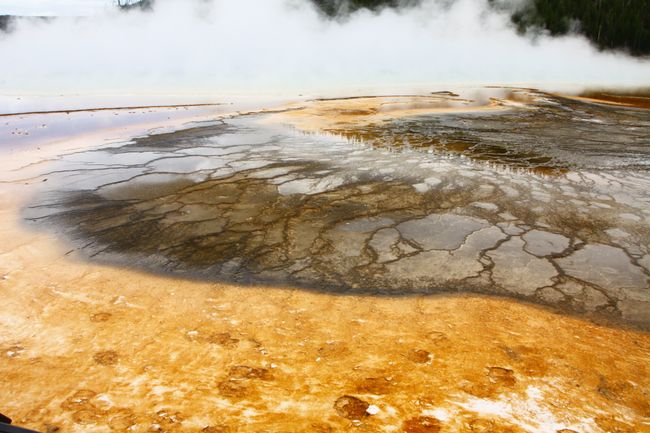
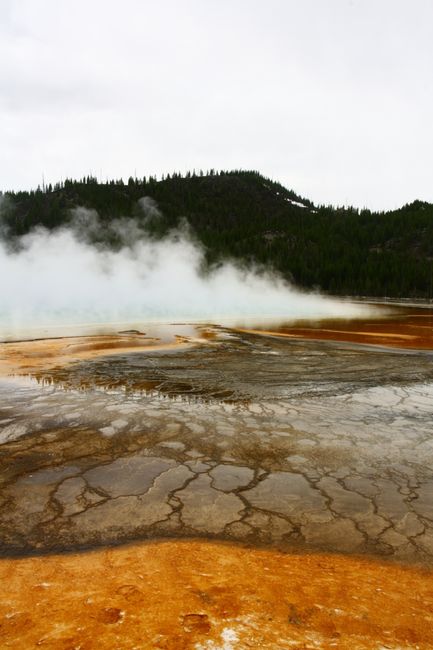
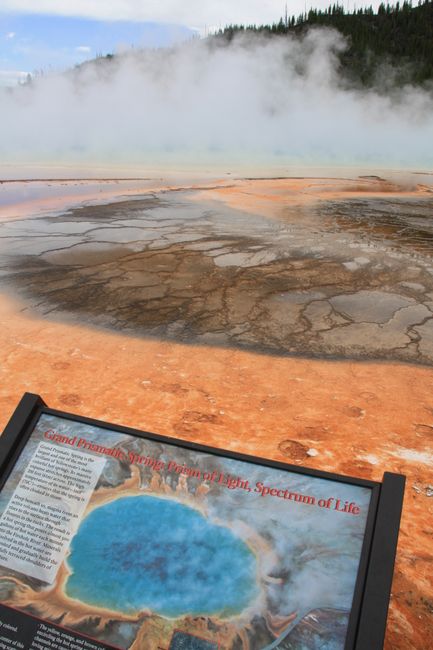
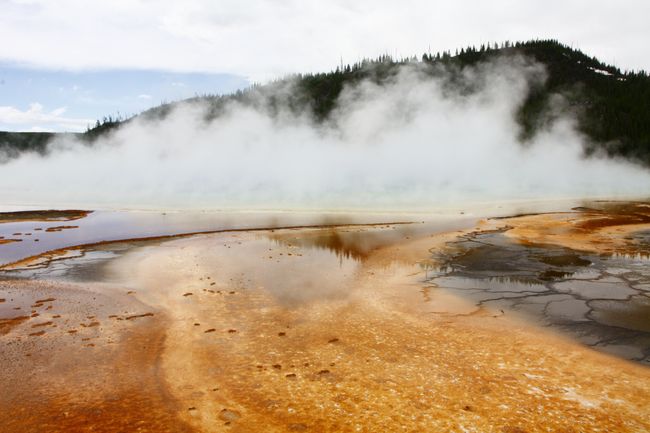
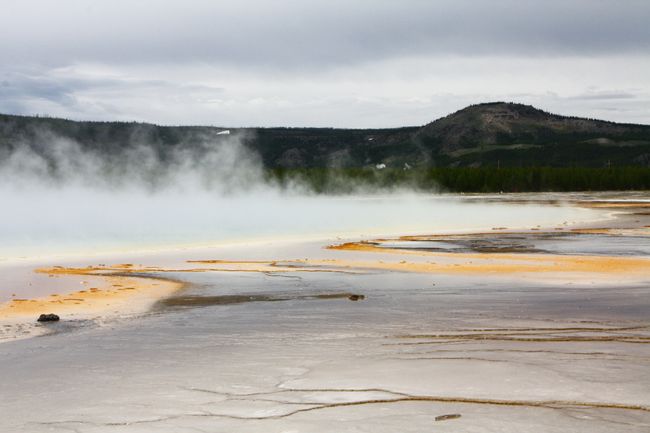
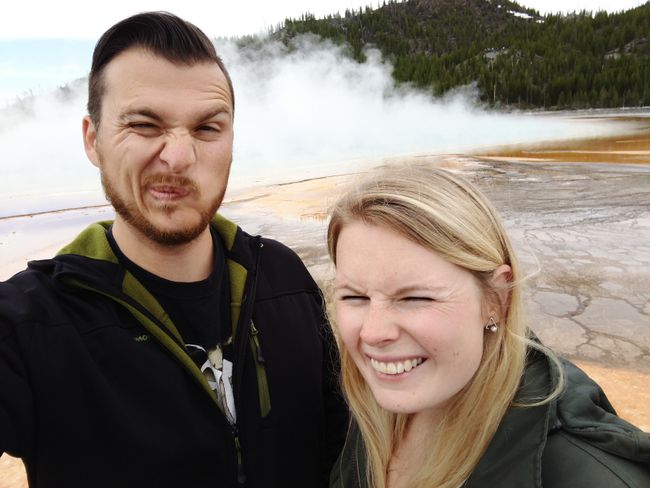
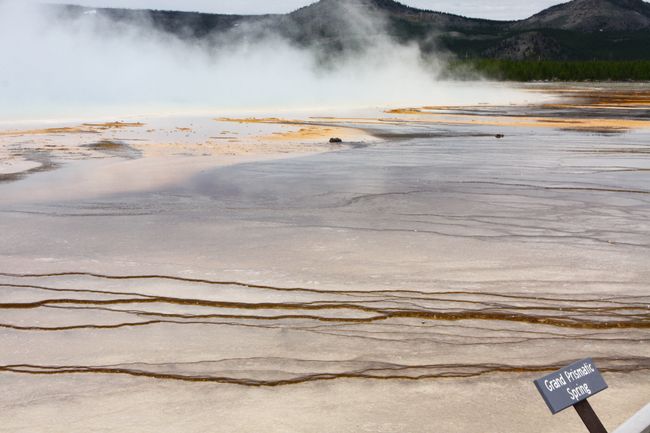
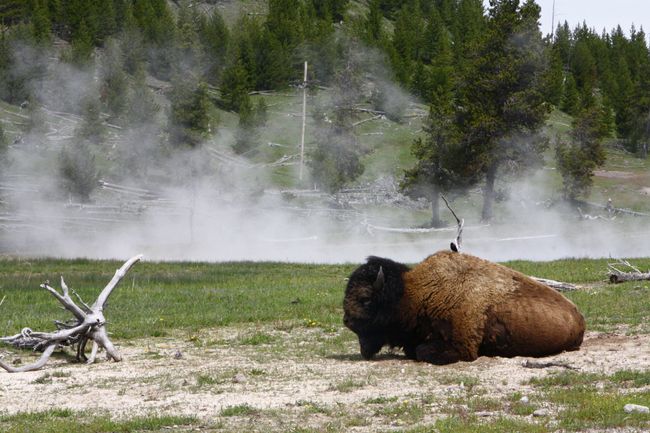
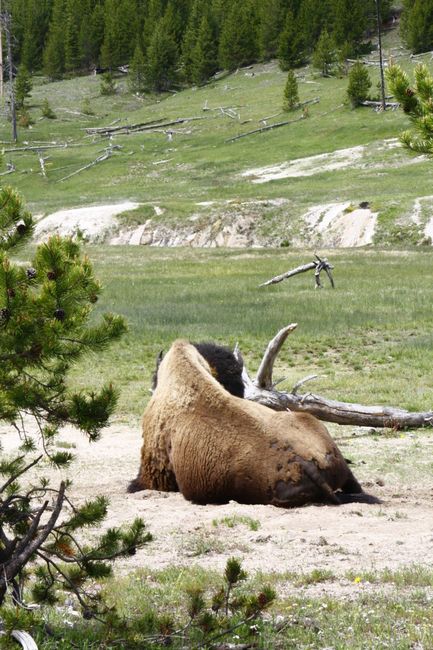
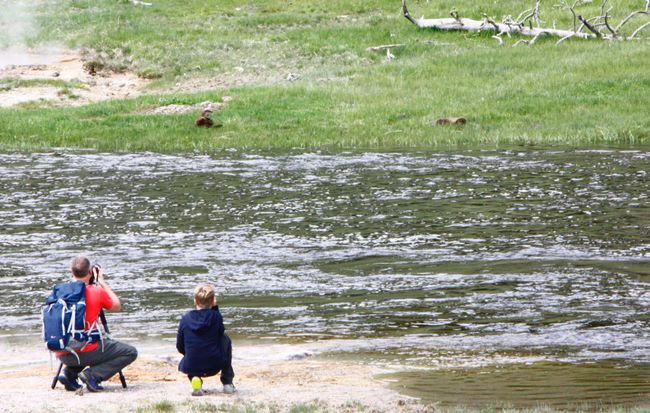
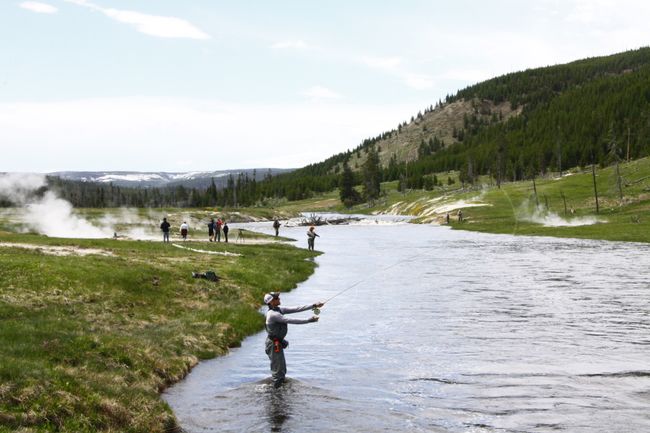
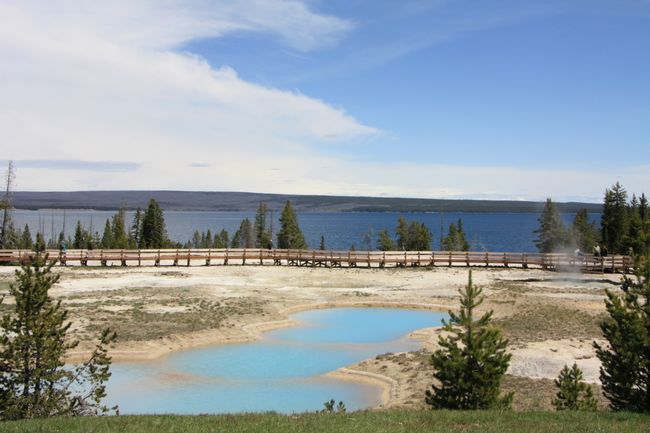
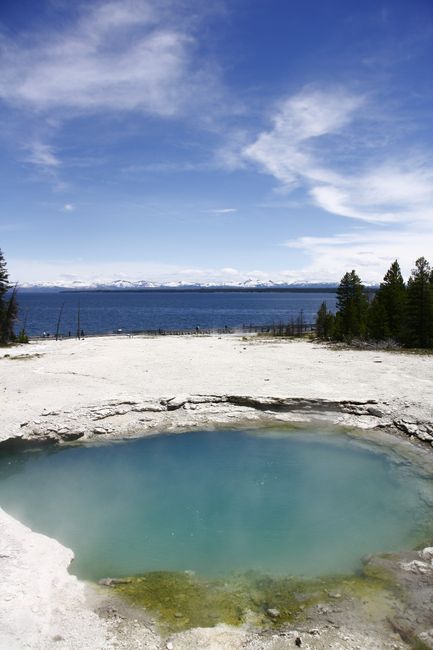
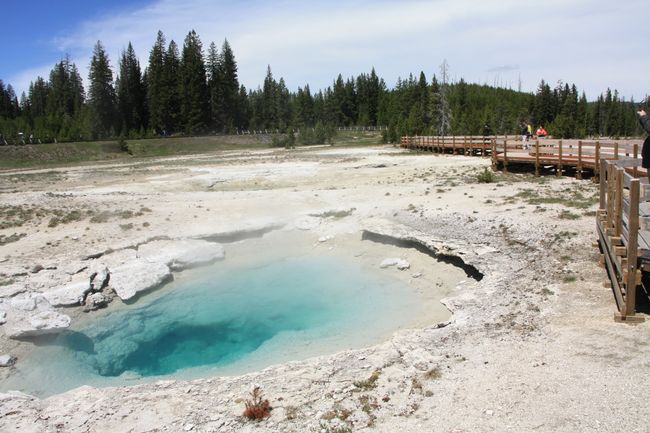
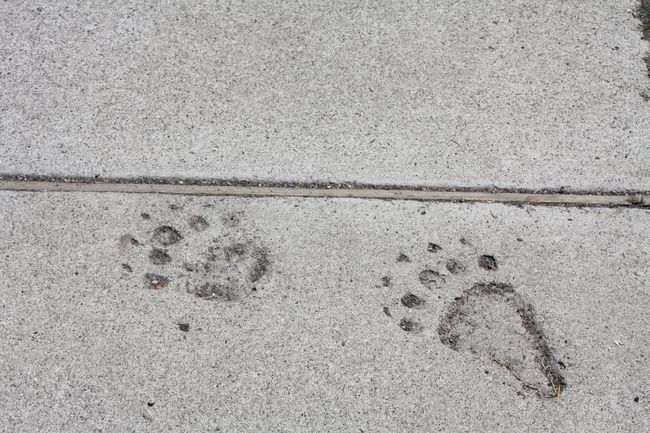
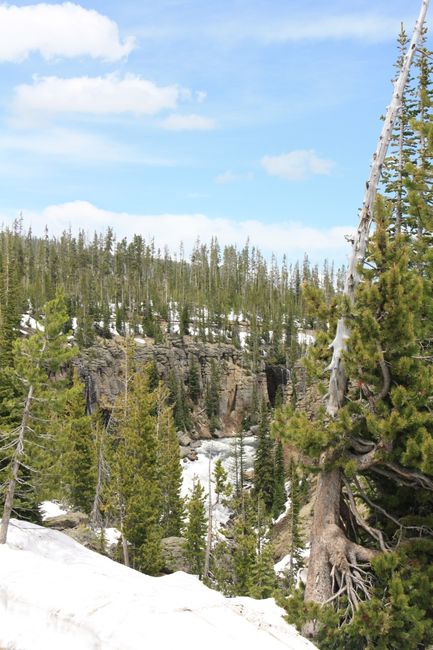
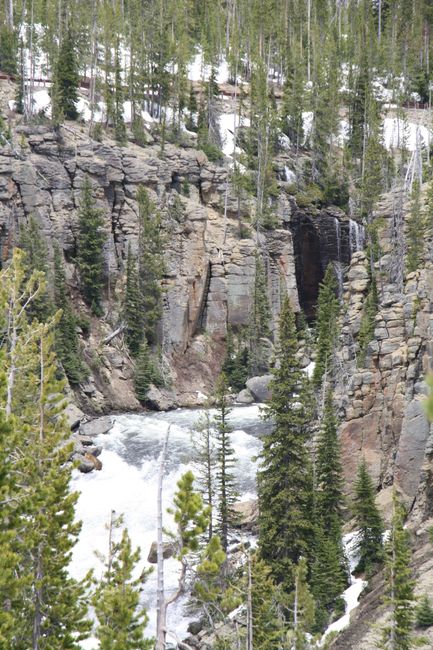
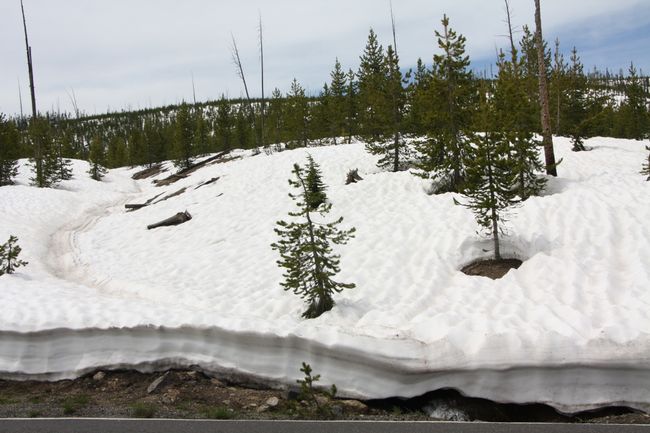
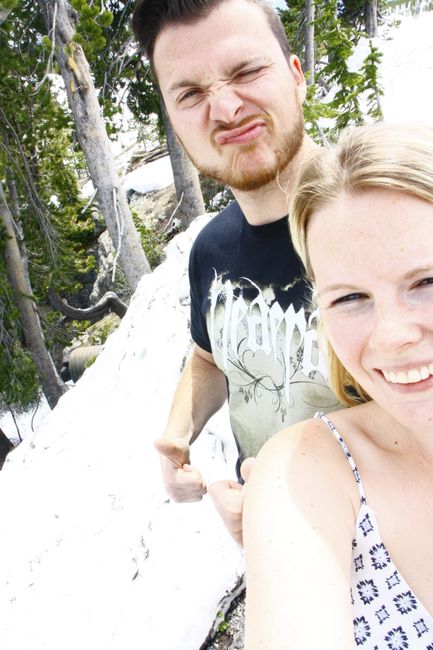

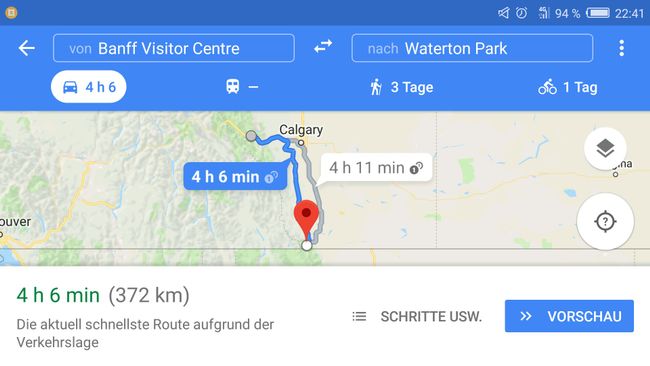
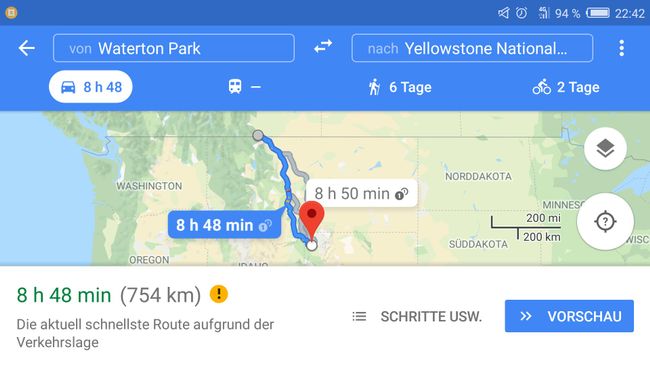
Abonner på nyhedsbrev
After being spoiled with the breathtaking nature in Banff National Park, we had to continue our journey south. The goal of today was to drive on the Cowboy Trail. During the drive, the land around us slowly became flatter and the mountains faded into the background. We were now driving through the Great Plains of Canada. Unfortunately, the Cowboy Trail had little to offer. I was hoping for a small western-like town on the roadside. Unfortunately, in vain. However, the wind was getting stronger and after a few hours on the road, we also wanted to arrive slowly. The nearest campsite we chose was pretty much in the middle of nowhere and the 'town' was defined by NOTHING, because there seemed to be no people living in the houses. It felt like a ghost town... it was too creepy for us, and to top it off, the wind was even stronger here, so we decided to keep driving. The next stop was supposed to be Waterton Lake National Park (about 8km hike to the American border), which was recommended to us by a colleague. Luckily, the campsite was right by the lake. The wind was still blowing strong, but there were small houses where we could use our camping stove to cook noodles. In Waterton, nature seemed to still have a hold on the town, and there were many little ground squirrels hopping around between the campervans. They had dug holes all over the campsite, so we had to be careful where we walked. While we were cooking our food, a herd of mountain goats moved through the small town and were not bothered by the passing people. The view of the lake and the wildlife around us were a crowning conclusion to our time in Canada. Because for the next few weeks, the USA was on the itinerary.
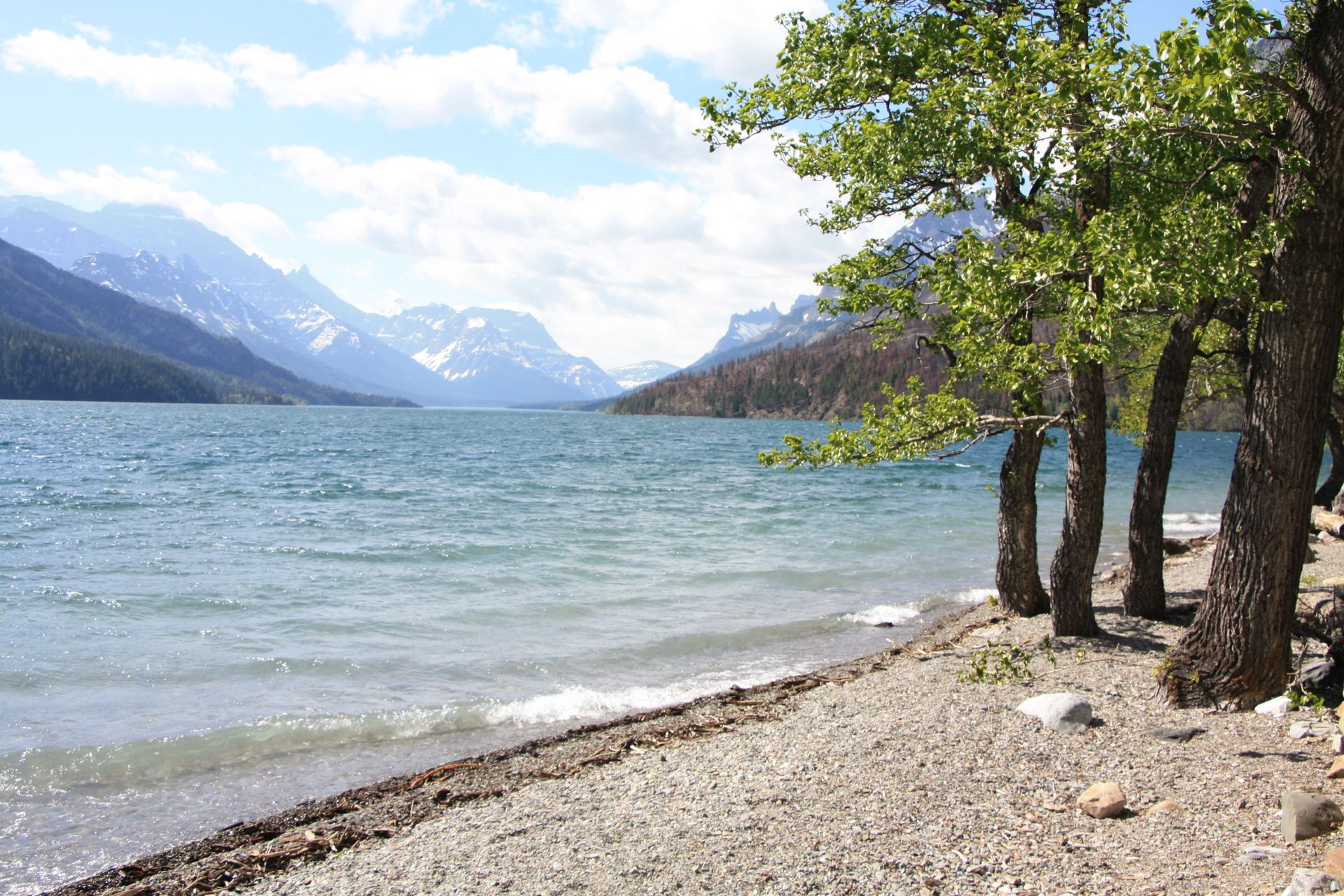
By evening, we had already packed up our food supplies and, if necessary, destroyed them, as we were about to cross the US-Canadian border. We had heard all sorts of stories and prepared ourselves for the worst (the inspection of the entire car). As we approached the border, my anxiety grew - for no reason at all, as we had nothing to hide... or did we? After about 20 minutes of driving through the mountains, we reached the border. Two border officers greeted us, one looked into our canopy, while his colleague questioned us about what we were doing, where we were going, and how long we wanted to stay in the USA. We had to leave our oranges, and then we were told to park and pick up our passports at the office. Everything went smoothly. We still had to pay $12 for entry into the country, and then the journey continued through Montana. Everything felt slightly different than in Canada, although the landscape looked quite similar. At least at the beginning of our trip through the USA. On the roadside in Montana, we were greeted by seemingly wild horses, as there was no sign of human life.
After several hours of driving, we stayed overnight in Bozeman. Known from The Big Bang Theory (Bozeman Reaction 3rd season, 13th episode), Star Trek, The Silence of the Lambs, and Grey's Anatomy (13th season, 16th episode). We had to explore such a famous city, at least for the obligatory photo with the entrance sign. But first, we fortified ourselves with a warm and typical American breakfast at IHop. Then we quickly went to the nearby cell phone store so that we could surf the internet in the USA and send our loved ones some signs of life from the road.
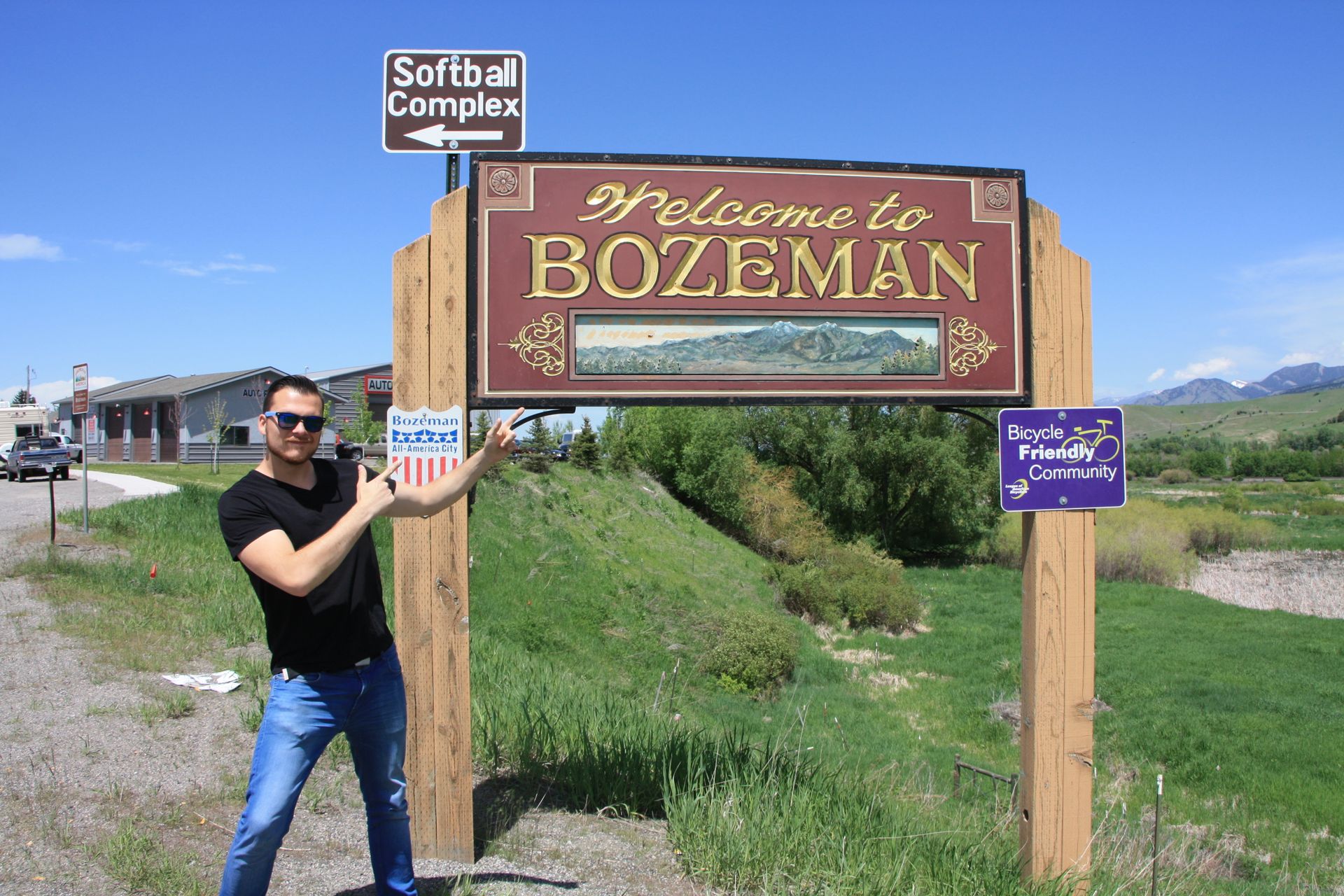
After photographing the most important buildings in Bozeman, we headed to the next major destination: Yellowstone National Park - the oldest national park in the world (established in 1872). The park is primarily known for its volcanic landscape (geysers, mud pots, hot springs). We had already seen all of this in Iceland. But maybe it looks different in the USA, who knows. Just before entering the park, we had to get a 'ticket' to legally drive through the park - the drive began with $30 less in our pockets. The park has a total of five entrances, and we used one of the northern ones. The road conditions in the park are not the best, so we could only drive relatively slowly. Unfortunately, we didn't realize beforehand how vast the park is (the north-south extent is 102km). Blindly and somewhat aimlessly, we first drove to the nearest 'attraction': the Mammoth Hot Springs. These are travertine terraces and hot springs. The water flows there are heated by volcanic activity and well up to the surface. Fun fact: The water deposits up to two tons of limestone per day. Unfortunately, our joy at the springs was already dampened at the beginning, as it was already difficult to find a parking spot. Our visit resembled more of a pit stop at a Formula 1 race, as we had parked in the 'disabled parking' spot. Sorry. So we quickly ran to the most noteworthy spot and back. When we got back to the car, we complained about the nice tourists. Little did we know that this would not be the last time. From there, we drove towards Old Faithful, the most famous geyser in Yellowstone. Shortly after, we also saw wild bison for the first time. Finally, since we were not allowed to see any whales or bears. The bison seem to be unbothered by humans and sometimes walk in the parking lots, on the hiking trails, or between the hot springs. A small herd of bison can cause quite a traffic jam. They also don't let anything bother them, these fluffy prehistoric giants. The bison are scattered throughout the park, and one can suddenly appear behind a hedge, ready for a bison selfie... of course, we always kept a proper distance, as they are still wild and unpredictable animals. I would have loved to pet them though.

After several bison encounters and mud pits, we arrived at Old Faithful. Unfortunately, we had just missed its 'eruption' and had to wait 90 minutes. The sun was slowly setting, and we didn't have a place to sleep yet. We had initially planned to stay at a campsite. However, they were all fully booked because it was Memorial Day... yeah, another holiday (we didn't have much luck with our timing). Wild camping was not an option in a national park, as the rangers go on patrol at night. The nearest campsite outside the park was about a 1 1/2-hour drive away. So we decided to stay overnight right by Old Faithful in a lodge on top of the supervolcano - glamping was the order of the day, unfortunately without WiFi... phew, what do you do without the internet. Well, first of all, we watched the eruption of the geyser, which lasted an astonishing 5 minutes. Then we explored the area mainly looking for something to eat. When we arrived at our small room (unfortunately without its own bathroom), we had bread and leftover watermelon for dinner.
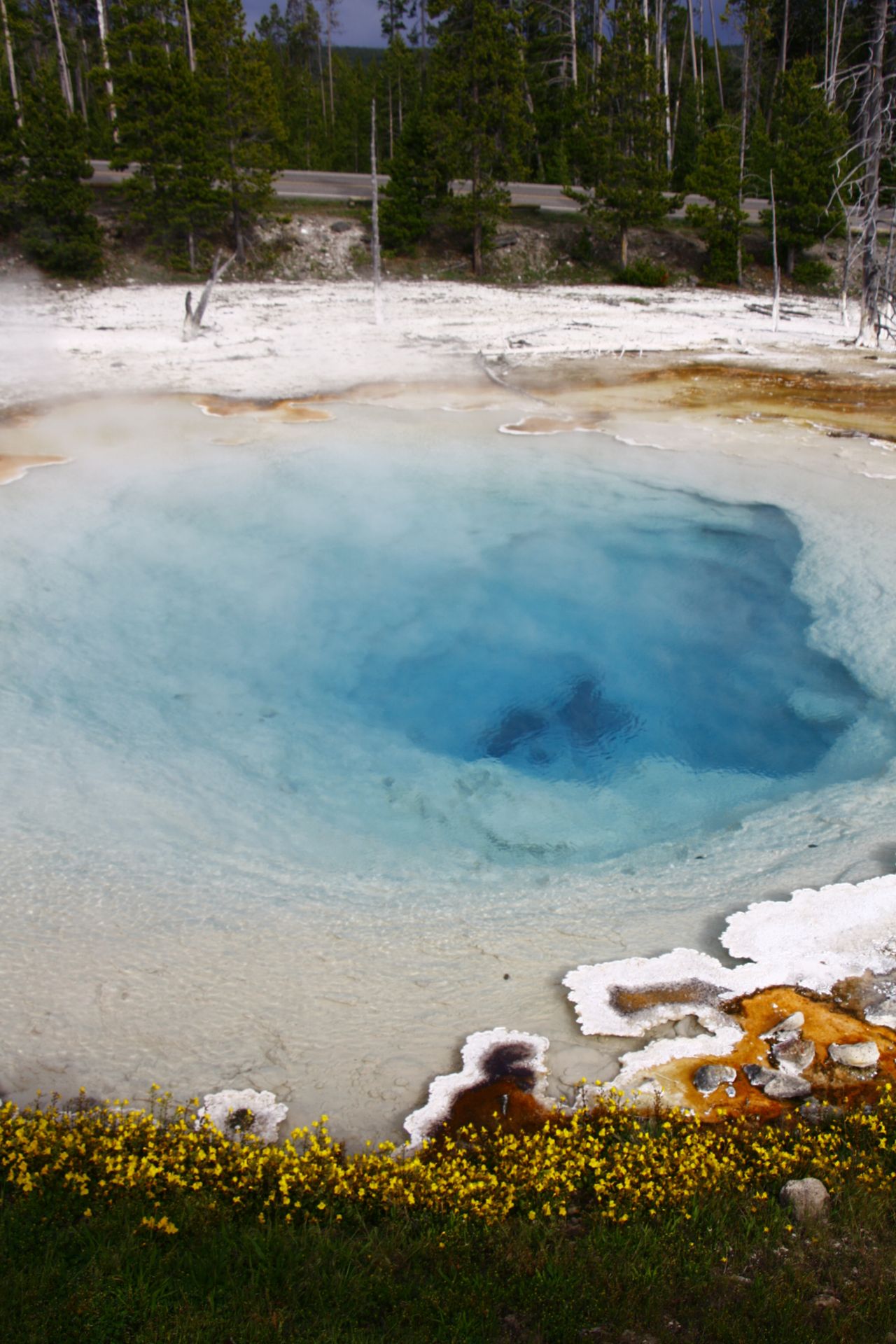
The next day started early so that we could be the first ones at the geysers and mud pots before the tourist groups arrived. We drove a bit further north to Firehole Lake Drive. A road that passes by various mud pots and geysers. Fortunately, buses and campers don't drive here. Finally, some solitude, which you wish for in such beautiful nature. Then we went to the Grand Prismatic Spring, the most famous thermal spring in the park. The distinctive feature of this spring is the play of colors. The edges are orange, yellow, and red, in contrast to the deep blue water. The colors come from microorganisms. Unfortunately, we could only guess at the colors, as it was quite cold outside and the spring was shrouded in steam. Again, we encountered thousands of groups of tourists, mostly of Asian descent. As a result, we decided to pack up our tents early in Yellowstone National Park and drive to the southernmost part of the park. Here too, nature did not disappoint us, and we stopped very often for various photo opportunities.

Abonner på nyhedsbrev
Svar
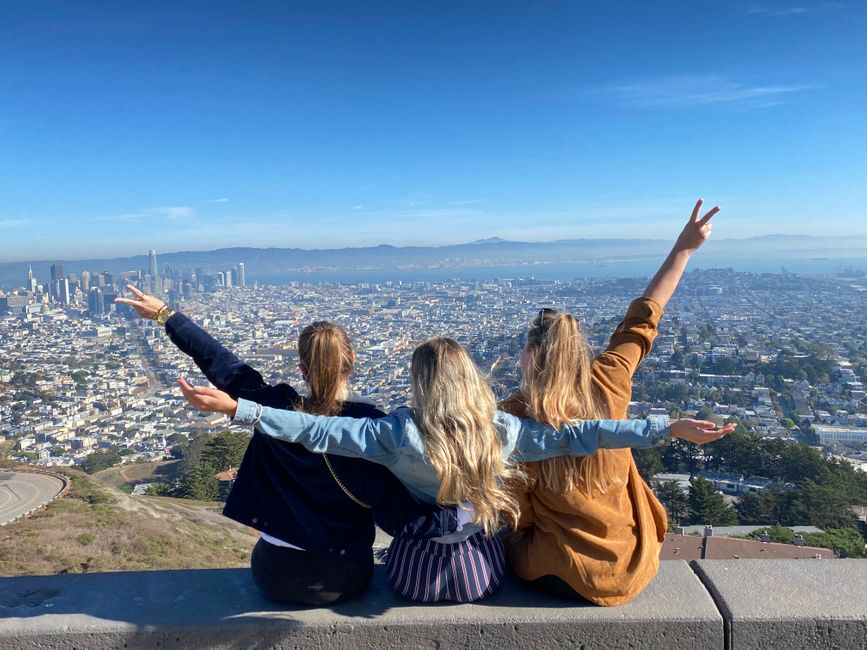
Rejserapporter USA
